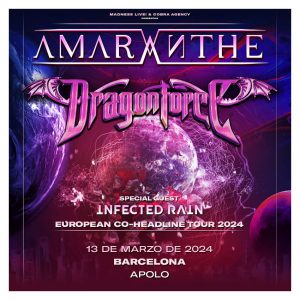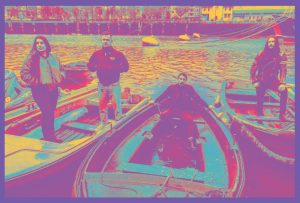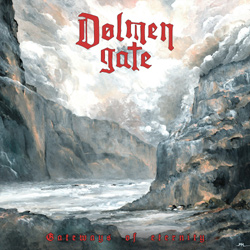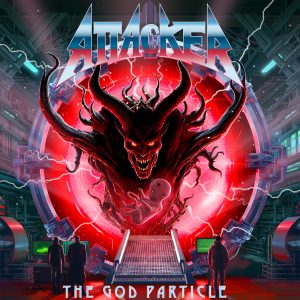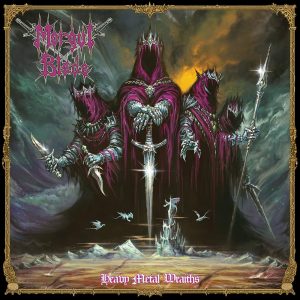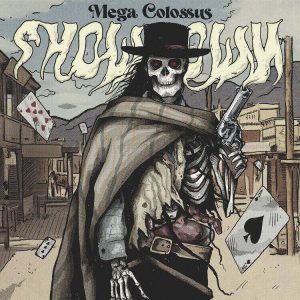EMILIE AUTUMN (Eng.)
– Hi, thanks for your time. What are you currently up to?
EA: I’m sitting in bed having tea and listening to jazz from the 1920s.
– Have been 5 years between your previous «Laced/Unlaced» and your new album, I guess you may be a busy woman and that it’s also important to take your time to create a solid effort but, will we have to wait so many years until your next opus?
EA: No, certainly not. The next album will be the entire soundtrack to the «The Asylum For Wayward Victorian Girls» Broadway musical, and I’ve committed to having this musical debut by the end of 2014, so things will be happening pretty quickly from now on!
– This new record is entitled «Fight Like a Girl», a straight-forward and clear title. Would you mind to share some light on its meaning and idea behind it?

EA: Certainly. The phrase «you fight like a girl» is just one of many commonly used phrases with which to insult boys and ridicule girls. The challenge of the title track and of the entire album was to take back those words, that power, and, in oversimplified terms, to turn an insult into a compliment by telling this story of how strong women actually are and that being compared to one in any way is far from a bad thing. But the phrase also represents the fight for equality in general, and that includes boys, gay people, everything in between, and any people commonly discriminated against. The whole album is a piece of musical theatre telling this epic tale of how these Asylum inmates go from victims to victorious, and that example of empowerment applies to absolutely everyone.
– This CD has been described as a feminist Opera at a mental hospital. Could you please elaborate a bit on this «concept»?Could we say «Fight Like a Girl» is an introspective and autobiographical album?
EA: I think it’s gone far beyond introspective and autobiographical at this point, and that is the very best thing about it. While naturally everything I ever do or ever create will be to a large degree about myself (as it is with all art — even when it’s said to be about somebody else, it’s really about the creator), it isn’t just about me — it’s about something much greater than myself. I’m telling the story of the Asylum and its inhabitants in musical form, and thus it is all about creating a world, an alternate reality.
– I personally think «Fight Like a Girl» it’ like a change on the EMILIE AUTUMN’s direction, which opens new doors. What are your thoughts on this?
EA: You are most definitely correct on this. My own personal transformation from victim to a very strong entity with the power and privilege to help others through my creations, and thus my growing from writing primarily in my own character to now being able to write and perform in many different characters is a massive development in itself. On this album, I am myself, I am my Victorian alter-ego, I am the rats, I am the doctors, I am the inmates, I am the ghosts. By taking on all of these characters I can craft a story that will take people on a journey from beginning to end, create a reality which they fully understand and feel very much a real part of, and present the first part of what will become the Asylum musical.
– Due to this slightly different approach I would like to know how was the songwriting process this time around or how do you use to work on it.
EA: The process of writing began with great difficulty, because I wasn’t merely writing about things like how I felt, my own personal experiences, my place in this world, my views on this world, etc. All of that was very necessary to establish in order to come this far, but now everything was different — I couldn’t write anything that didn’t have to do with the Asylum story, nothing that wouldn’t explain a scene or a character, and in that way it was much more like writing an actual book, or a screenplay, where there are very serious rules about how best to further a story, further the action, edit one’s self, resist the temptation to be self-indulgent, mercilessly cut anything that does not further the scene and is not absolutely crucial to the story, and so on. But then I realized that I’d done this all before. I’d done this when I wrote the damned book in the first place. And that’s when it became easy, when it just unfolded in front of me, clearly, gracefully, beautifully. All I had to do was follow the book. That’s all.
– It could also probably be your most personal and intimate record so far so, does each album you release represent a certain moment in time?
EA: In many ways, «Opheliac» represented far more personal aspects in that, unlike with FLAG, everything was very much about me, as I mentioned earlier. If FLAG initially appears to be more personal, I think it’s because I fully committed to portraying those characters and telling this story, and, if I did that correctly, then it should definitely feel as though every word and every sound is coming to you from the bottom of my most personal soul. That’s what being a good storyteller is all about.
– In fact lyrics are really deep, which sometimes contrast with catchy tunes. This is, no doubt, an interesting contrast so, are contrasts an important part of the album?
EA: Contrasts are a very important aspect of everything I’ve ever done, I think, from how I dress to the time periods I draw on for my musical style and inspiration, and some good examples of that are previous songs like «Gothic Lolita,» which was meant to be very catchy and danceable but was also so disturbing that I could never bring myself to perform it live, and even «The Art Of Suicide,» which is the truest, saddest thing I’ve ever written, but is so pretty you can’t help but want to waltz to it. It’s a method with which to infect someone’s mind, really. You get into someone’s brain with something very appealing, but, once you’re in there, you can do all sorts of fun things…
– Anyway I sometimes missed more violins, why did you decide to give violins less importance?

EA: You’re the first person to ask me about that, and I’m honestly surprised it hasn’t come up sooner, but I’m glad to have the opportunity to explain this. Firstly, the violin is all over the album from the very first note to the last, but it’s utilized in the classical, symphonic way. It’s providing the orchestra. But yes, it isn’t the electric violin that is so easy to identify and which I’m very grateful to have become known for. I struggled with the question of how much of this style of playing to use on the album, or if any should be used at all, and, in the end, and as you heard, I decided not to use any electric violin. The reason is very, very simple — it all comes down to what I was talking about earlier, about not including anything in the telling of a story that isn’t absolutely necessary to further the action or to explain or develop a character, and, and difficult as it was to not include such a trademark, the electric violin didn’t have anything in particular to do with these characters, and so I had to save it for another time. I think it’s good for people to miss it, but I think that, if it were there amongst everything else that is going on in this album, it would seem very out of place.
– All this about «Fight Like a Girl» being said; how could you describe it in just 3 words?
EA: It kicks ass.
– You have been involved in several projects so, what have been both your best and worst musical moments so far?
EA: The best moment is this one right now, this era of my life and musical development where I have the privilege of showing my ultimate self to the world completely on my terms, with no involvement with anyone or anything else. No label, no debt, no nothing. The worst then would have to be any time when I was not in control. I will leave it to the internet to remember when those moments might have been.
– And what artist or band would you like to work with and you haven’t done it yet?
EA: Queen.
– Finally, what are your near-future plans?
EA: In a couple of weeks I am flying to Los Angeles to make two videos with my great friend, Darren Lynn Bousman, who also directed «The Devil’s Carnival,» the amazing movie musical which I also star in and which is now available on DVD. Then we begin the next part of the FLAG tour before filming the second episode of «Carnival,» and all the while I try to write the rest of this musical…goodness…and that is only part of what is actually going on right now!
– That’s all, thank you once more for answering our questions. If you want to add some final words; feel free to do it.
EA: I’d just like to thank you, and the Plague Rats and readers, so very, very much for this opportunity to connect with you all, and that the Crumpets and I couldn’t be more excited about singing with you again soon. You are all very dear to us, and you have all my love, from my Asylum to yours.
